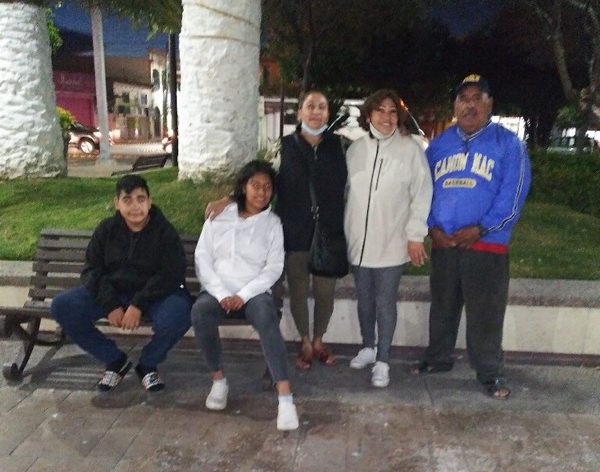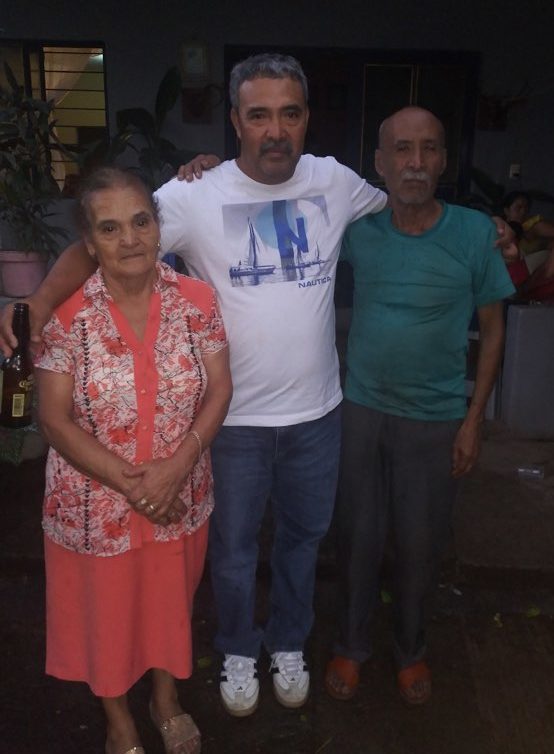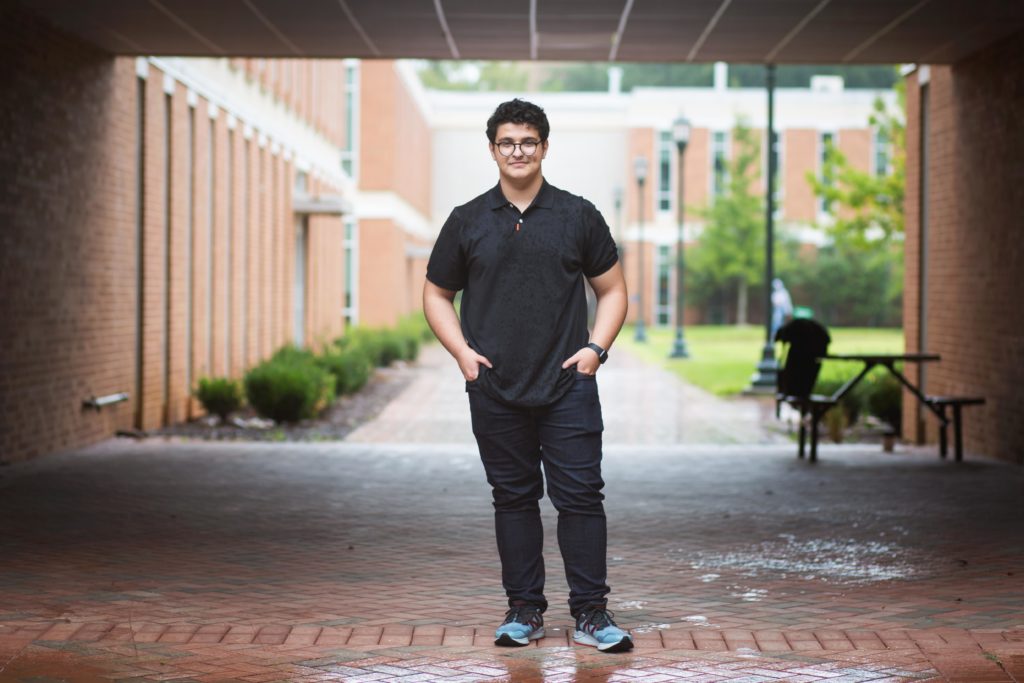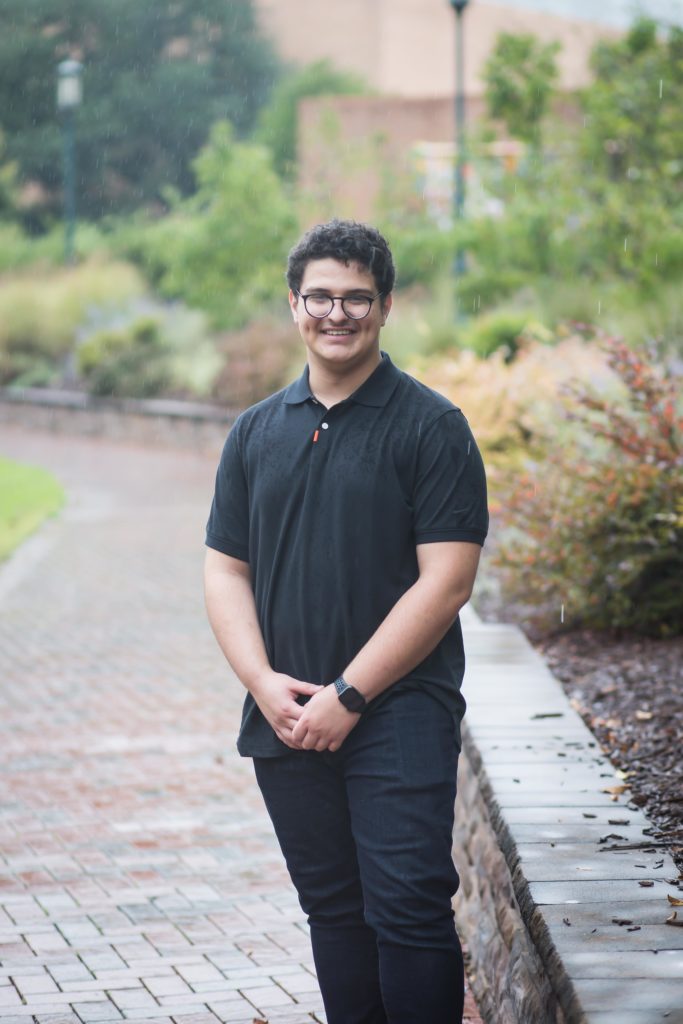When 17-year old Tahira Askari fled Taliban controlled Kabul last August, she did not know what life would be like for her in America. Tahira and her uncle, Bahroz Mohmand, a decorated Afghan interpreter who supported US military operations in Afghanistan for 10 years, joined Spectrum News on August 17, 2022. The two shared their harrowing journeys and the legal limbo Tahira and other Afghan evacuees now face as the Advocacy Center helps them apply for asylum. The two stressed the importance of the passage of bipartisan legislation known as the Afghan Adjustment Act. The legislation would provide a clear path to citizenship for Afghan evacuees, fulfilling a promise the United States pledged to keep them safe.
Tag: immigrant justice program
‘The least we can do.’ Charlotte Center for Legal Advocacy hosts asylum application clinic
Charlotte NC-The Charlotte Center for Legal Advocacy’s offices in east Charlotte were filled with lawyers and immigrants working together to file asylum applications on Saturday.
After people enter the country and are detained at the border, they generally have one year to file for asylum through an I-589 form. Though people can file the applications themselves without the aid of an attorney, legal assistance drastically improves their chances for success in immigration court.//accepted
This weekend’s clinic is the first of its kind in North Carolina, CCLA immigration attorney Rebekah Niblock said, though similar clinics have been held throughout the country.
Though the clinic’s participants won’t be legally represented by the CCLA in court, it’s a way for the agency, overburdened with requests, to expand its reach and serve more clients without having to turn anyone away.
“We can’t accept everyone,” Niblock said. “But the least we can do is help them get their applications out.”
Read more at: charlotteobserver.com
“I no longer feel afraid”, Feeling safe and secure after years of instability

Domingo is a quiet man who loves his wife and children. He is respected by his friends and greets everyone with a smile. He works hard in his job in construction and aspires to open a small business. And now, after 8 patient years, he is also a legal resident of the United States.
Domingo emigrated from Mexico in 1998 in hopes of economic opportunity. If he stayed in Mexico, he knew his job options were scare and the future he could create would be full of hardships. It was a difficult decision to leave his parents behind, but he said goodbye, not knowing it would be 23 years before they were reunited.
Domingo eventually settled in North Carolina where he met his wife, Esperanza. Esperanza was recently divorced from her abusive ex-husband and raising her children alone. They became a family and went on to have children of their own.
During this time, Domingo found himself living in fear. His wife and children were all U.S. citizens, leaving Domingo as the only undocumented person in their house. He worried about being deported and what would become of his wife and children if his undocumented status was discovered. He knew he needed stability.
Domingo and Esperanza contacted Charlotte Center for Legal Advocacy in 2013. Staff attorneys with our Immigrant Justice Program helped Esperanza file an I-130 petition, establishing her marital relationship with Domingo and started his process to apply for legal permanent residency. As a spouse of a U.S. citizen, Domingo was eligible to file an I-601A waiver for his unlawful entry into the U.S. in 1998, thereby enabling him to apply for an immigrant visa at the U.S. consulate in Mexico. In 2018, the Advocacy Center was able to submit Domingo’s immigrant visa application, a process that was further delayed by the pandemic in 2020.
If this all sounds complicated and difficult to navigate, that’s because it is. And if you are an immigrant doing everything you can to work hard and provide for your family, it is downright terrifying.

Research has found that the probability of a positive outcome in an immigration case increases dramatically, from 5% to 95%, when an individual has legal representation. But in Charlotte, having legal representation to help guide you through this stressful, confusing process is less likely. In a recent report, only 24% of respondents in Charlotte Immigration Court had legal representation, compared to 60% nationally. Charlotte Center for Legal Advocacy is determined to change that.
Armed with the knowledge and experience of the attorneys at the Advocacy Center, Domingo’s immigration process had a positive ending. In 2021, Domingo traveled to Mexico for the final interview of his visa process and was reunited with his family for the first time since 1998. He returned to the United Status as a legal permanent resident with feelings of safety and security he never thought possible. He looks forward to applying for his U.S. citizenship in three years.
Learn more about our Immigrant Justice Program and how we support the Charlotte immigrant community.
Advocating for young immigrants like Talha

Talha has faced more challenges in his young life than some people do in their entire lifetime, but life wasn’t always difficult. Born in Turkey, Talha grew up in a loving family with his parents and younger sister, supporters of the Hizmet Movement. For Talha, this meant having access to one of the best sources of education in his country. It provided him the opportunity to explore areas of study that were not accessible to the average Turkish student and introduced him to his love of robotics. After finishing middle school in the top percentage of students nationally, Talha eagerly prepared to attend one of the best high schools in his country. That summer, everything changed.
Known internationally as a progressive Muslim group focused on education, disaster relief, and medicine, the Hizmet Movement was blamed by Turkish political leaders for a coup attempt in July 2016. Turkish President Erdoğan alleged the Hizmet Movement was a terrorist organization and began imprisoning Movement leaders. Talha’s father was one of those political prisoners.
“My father was just helping people. He would travel to Somalia [to work on aid relief]. He helped people get coal in the cold winter. He was a good man, but they arrested him.”
Talha, his mother, and little sister were left to fend for themselves.
“We had no money, nothing. I couldn’t say my father was in the Hizmet Movement. I couldn’t tell people my father was in jail. I had to hide myself; it was really hard.”
Two years later, faced with limited opportunities for education, Talha decided to escape to the United States at the age of 17. He came to Charlotte to live with his father’s friend, who helped him connect to the Charlotte Center for Legal Advocacy. The Advocacy Center’s help came at a crucial time.
“I didn’t know how to speak, how to write, or how to read English. I had no one around me. I had just escaped from my country, and I didn’t know how to be a refugee. But then my friend found Charlotte Center for Legal Advocacy.”
The Advocacy Center’s Immigrant Justice Program staff attorney, Kiara Vega, worked diligently to help Talha apply for Special Immigrant Juvenile Status (SIJS). Talha’s application for SIJS was approved and he was granted a Green Card.
When Talha heard his request for permanent legal status was approved, he was overcome: “I was completing my college applications and I needed a Green Card, otherwise I wouldn’t be eligible for scholarships. One day my friend went to the mailbox and brought me an envelope. I opened it and it was my Green Card. At that moment, you cannot even realize my happiness. It meant college for me, it meant a future life in the US for me, it meant a lot.”

Talha believes the Advocacy Center changed his life. He wants to improve his English, but eloquently describes what the Advocacy Center means to him:
“I was in a room, the door was locked, and I couldn’t get out. I needed to open that door to get to my new world, into my new life. Charlotte Center for Legal Advocacy was the key. You helped me open the door.”
Now a student at the University of North Carolina-Charlotte, Talha’s future looks brighter as he pursues a degree in aerospace engineering. He maintains a strong relationship with his family back in Turkey and hopes they will be able to join him some day in the United States. He believes all his fellow Turkish citizens deserve a better future.
Your support of the Access to Justice Campaign ensures we can fight for young immigrants like Talha, providing opportunity and stable immigration status. Donate today to help us keep up the fight.
One woman’s journey to become a permanent resident

The first thing you notice when you meet Mirian is her kind smile and upbeat attitude. What you might not know is the 10-year journey it took to her become a permanent resident after immigrating to the United States as a young girl.
Born in El Salvador, Mirian traveled to the United States alone at the age of 13 when her grandmother and primary caregiver passed away. She was able to reach her mom in Charlotte, where she now lives.
For Mirian, the possibility of getting a green card “…is a dream that every person like me is waiting for.” But she quickly learned that it was a dream that would take time, knowledge, and resources she didn’t have. Facing the immense barriers put in place by a complicated immigration system, Mirian contacted Charlotte Center for Legal Advocacy. From the moment the representation began, she knew it was the right decision.
“It’s an amazing place. You feel secure when you get there, and the people were all kind. At the beginning I didn’t speak any English, but you always had translators available. I felt at home.”
With the support of her family and her own determination over the years, Mirian was aided by Advocacy Center attorneys and obtained her permanent residency this past spring as a Special Immigration Juvenile. Mirian is not a lone statistic. Research has found that the probability of a positive outcome in an immigration case increases dramatically, from 5% to 95%, when an individual has legal representation. Most cases take years to resolve and hiring a private attorney can be cost prohibitive for immigrants and their families.
Reflecting on the experience, Mirian cannot help but be overcome with emotion. “[Without Charlotte Center for Legal Advocacy] I think it would have been difficult for me and my family. If I had to go somewhere else, it would have cost a lot of money. My mom couldn’t afford it. I am thankful for everything you have done for me, everything you have done for my family.”
Now married with two wonderful children, Mirian knows having a green card has created the stability and security that she dreamed of when she came to America over a decade ago. “I don’t have to live in fear. I can live in peace and see my kids grow up.”
Planning to return to school to explore a career in real estate, Mirian is excited about the possibilities in front of her. “I see my future better than I did before.”
Action Alert: Supreme Court Sides with DACA Recipients, Providing Relief for Immigrant Youth and Their Families
This decision emphasizes that DACA is right, and that for DACA recipients and their families: home is here.
Today, the Supreme Court ruled to uphold the Deferred Action for Childhood Arrivals (DACA) program in a 5-4 ruling that said the Trump administration’s reasoning for ending the program was “capricious and arbitrary.”
In the decision for the majority, Chief Justice John Roberts wrote: “We do not decide whether DACA or its rescission are sound policies. We address only whether the agency complied with the procedural requirement that it provide a reasoned explanation for its action.”
Chief Justice Roberts added that the administration could try again if it provided adequate reasons for shutting down the program.
A joint statement from Charlotte Center for Legal Advocacy, Comunidad Colectiva, the Hispanic Federation, Action NC and Latin American Coalition:
Today’s decision is a testament to what happens when directly impacted communities demand change. The Supreme Court sided with the American people- who overwhelmingly support the DACA program- and rejected the decision to deport immigrants who are American in every sense except by law.
This decision protects the lives of nearly 700,000 current DACA recipients, including more than 24,000 in North Carolina, and their families from deportation-for now. This decision affirms what we have always known: immigrants make America great. It comes as our country continues to struggle under COVID-19. During this time, DACA recipients and immigrants broadly have played critical roles in supporting our health systems and economy.
Currently, 29 percent of all physicians, 38 percent of home health aides and 23 percent of retail-store pharmacists are foreign-born. Immigrants also make up a large proportion of essential staff in grocery stores, hospitals, sanitation and transportation. According to the Department of Homeland Security, nearly one-third of DACA recipients work in these essential jobs.
With this decision, DACA recipients and their families can continue to live safely in our community. Nearly 250,000 children in this country have a parent with DACA status. Since the Trump administration rescinded the program in 2017, immigrant youth, their families and allies across the country have been fighting to protect DACA. While this decision gives needed relief for DACA recipients and their families, immigration and deportation threats are far from over.
Charlotte immigration advocacy groups including the Latin American Coalition, Hispanic Federation, Charlotte Center for Legal Advocacy, Comunidad Colectiva, and Action NC call on the Trump administration to respect the decision of the Supreme Court and not try to end the program again. The administration must also instruct U.S. Citizenship and Immigration Services (USCIS) not to share information that DACA recipients and their families have voluntarily given to the government with ICE.
As we celebrate today’s decision, we also acknowledge how much more fighting for change there is still to do. While this decision is a welcome relief for many, there is still much to be done to protect the DACA program and its beneficiaries. One step is for people to make their voice heard by voting in the November election.
This decision follows weeks of courageous organizing and protests from Black people and allies across the country to demand an end to police brutality, white supremacy and a call to reallocate police resources in ways that strengthen our community safety net. We stand with the immigrant and Black community and commit to fighting for their stability and safety.
Each of our advocacy groups are here to support dreamers and DACAmented individuals during this time. On Thursday, June 18 at 7 p.m., Comunidad Colectiva will hold a Facebook Live with more information about what this decision means and what to expect as we move forward. This victory is for the youth and their families who are fighting the good fight. Today, the Supreme Court stood with the immigrant community, protecting their right to work and thrive in the place they grew up, the place they call home.
Our Asks for Next Steps
- Demand that USCIS immediately begin accepting new DACA applications and continue DACA renewals, restoring the program to its original state before termination.
- Call on Congress to pass permanent protections and solutions that help these beneficiaries, including extensions of TPS work permits, protections from deportation for immigrants, and benefits in any future stimulus package to address COVID-19.
- Call on state and local leaders to get ICE and CPB out of our communities and sign onto our pledge as well as working to provide free COVID-19 testing, treatment and services for all, regardless of immigration status.
- In solidarity with Black people, we call for the investment in community initiatives that strengthen Black and Brown communities, as well as changing laws and enforcement policies to end the systemic mass incarceration of people of color.
- An immediate suspension of the Public Charge rule
Share this message
The Supreme Court ruled in favor of upholding the DACA program today, but the fight to protect DACA continues.
Share this message with your networks and encourage those who need assistance with DACA to contact Charlotte Center for Legal Advocacy for more information on what to do next.